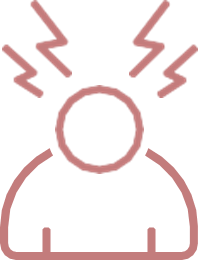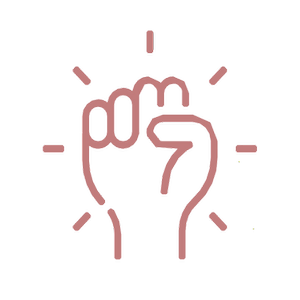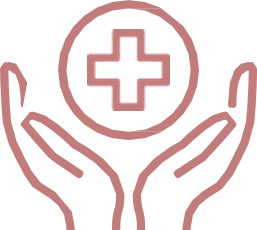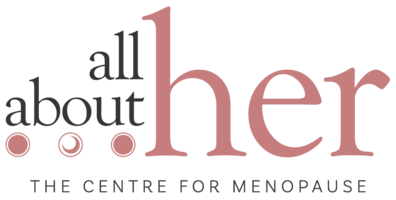Managing Stress Through Perimenopause
Many of the symptoms of perimenopause overlap with the symptoms of chronic stress and even burnout, so it can be difficult to tease out the root cause of the symptoms.

Midlife Stressors
Peri/Menopause & Managing Stress
Many of the symptoms of peri/menopause overlap with the symptoms of chronic stress and even burnout, which can make it difficult to tease out the root cause. Hot flushes, night sweats, sleep difficulties, mood changes, memory lapses and concentration problems can all be intensified by stress. Stress not only worsens these experiences but also shapes how they’re perceived, making them feel heavier and harder to manage.
Chronic stress is also linked with depression, cardiovascular disease, cancer, metabolic syndrome, mild cognitive impairment in later life, dementia, Alzheimer’s disease, and accelerated ageing. This is why understanding and addressing stress during peri/menopause is so important for both short-term wellbeing and long-term health.
A Powerful Rite of Passage
It is vital to counteract outdated societal stereotypes regarding aging and menopause. Peri/menopause isn ot a disease or decline, but a powerful and natural stage of life. Like puberty or pregnancy to post-partum, it is a biopsychosocial transition that brings it's own mess and magic.

Framing menopause as a natural phase in life rather than pathologising it is crucial, and viewing the menopausal transition as a period that can bring liberation, adaptability, and empowerment is part of this approach. However, that doesn't mean we need to suffer through it. Generations of women before us, have had to do that. And it didn't do them any favours.
Instead when we arm ourselves with accurate information, seek the support that is right for us (HT and/or complimentary therapies) build (as best we can) a lifestyle that supports us in the way that this transition MOST benefits from AND push back agains the unrealistic roles and expectations that women have carried for decades such as being the default thinker, planner, organiser and rememberer for everyone else, we are in the best position to navigate these years. Peri/menopause invites us to question and release these burdens as we step into the next phase of life.
Supporting this transition in this way and wllowing space for this transformation, opens us up to the possibility of liberation, adaptability and empowerment.

Education and Empowerment
Research shows that education programs and social support networks help people navigate peri/menopause with better health and wellbeing. Knowing that many symptoms are temporary, and understanding practical strategies to manage stress, can make this transition feel less overwhelming.
Peri/menopause-informed education empowers women to respond to challenges with confidence and equips them with tools that support both physical and mental health during this life stage and beyond.

Lifestyle Support
Lifestyle changes can make a real difference in how stress is managed during peri/menopause. Regular aerobic exercise, yoga and strength training not only build muscle and protect against chronic disease but also improve mood and reduce stress.
Prioritising sleep is also key. Good sleep hygiene, relaxation practices such as meditation, breathing techniques and positive affirmations can reset the nervous system and help buffer against stress.

Emotional and Social Support
From a social/cultural perspective, many of the difficulties of this transition are rooted in the social position of women*, rather than the transition itself and offer an opportunity to bring into focus unsustainable or unrealistic expectations from ourselves and others.
Rather than try to manage the many potential symptoms of perimenopause in isolation, try building a support network from family, friends or community to give and receive support from others.

Psychological Support
The themes that consistently emerge during peri/menopause centre around body changes and emotions, experiences of loss and grief, identity and autonomy, values and purpose, and the question of how we want to move forward into the next chapter of life.
After years of focusing on others, peri/menopause offers a perfectly timed invitation to review internal patterns that cost us autonomy, wellbeing and peace of mind. People pleasing, “good girl” behaviour, or always putting everyone else first are no longer sustainable in midlife.

This can also be a time when mental health issues such as depression, anxiety, eating disorders, body image concerns or trauma re-emerge, or appear for the first time. While this can feel distressing, it also signals the importance of support.
Menopause-informed psychologists can help by using evidence-based approaches such as Schema Therapy, Acceptance and Commitment Therapy (ACT), Cognitive Behaviour Therapy (CBT), EMDR, somatic psychotherapy, and psycho-education. The right psychological support can help manage stress, build resilience, and reconnect with a sense of self.

Medical Support
For some women, Hormone Therapy (HT) provides relief from physical symptoms and can also improve mood, stress resilience and experiences of anxiety or depression.
Each person’s experience of peri/menopause is unique, and support is often most effective when it combines lifestyle, psychological and medical approaches. If stress is impacting your ability to function or enjoy life, reaching out to a peri/menopause-informed health professional can make all the difference.


Ready to feel more supported in your peri/menopause journey?
At All About Her, our peri/menopause-informed psychologists and health professionals are here to help you manage stress, protect your mental health, and step into this next phase of life with confidence. Click on the link below to book your appointment today, explore our resources to download or read our blogs to learn more about how we can support you.
References:
*All About Her - The Centre for Menopause acknowledges that all people born with ovaries and who live long enough will experience the menopause transition. This includes cisgender women, transgender men, non-binary individuals, and any other individual with ovaries. We use the terms
individuals/people to be inclusive of the many who do not identify as women, but who will nonetheless experience this significant life stage.
Disclaimer: The information presented is for general understanding only and should not substitute professional medical advice. If you are concerned about your health, talk to your doctor or healthcare team for personalised guidance.
© All About Her Centre 2024
